- Home
- Charlaine Harris
Definitely Dead Page 6
Definitely Dead Read online
Page 6
Chapter 6
I didn't know how I was going to accomplish this. I didn't know who would acknowledge that I could help. There was a crowd at the elementary school, of course. A group of about thirty adults was standing on the grass on the street side of the sidewalk in front of the school, and Bud Dearborn, the sheriff, was talking to Andy on the front lawn. Betty Ford Elementary was the same school I'd attended. The building had been fairly new then, a straightforward single-level brick building with a main hall containing the offices, the kindergarten, the first-grade classrooms, and the cafeteria. There a wing to the right for the second grade, a wing to the left for the third. A small recreational building was behind the school in the large playground, attainable by a covered walkway. It was used for the children's bad-weather exercise sessions.
Of course there were flagpoles in front of the school, one for the American flag and one for the Louisiana flag. I loved driving by when they were snapping in the breeze on a day like today. I loved thinking of all the little children inside, busy being children. But the flags had been taken down for the day, and only the tied-down ropes moved in the stiff wind. The green lawn of the school was dotted with the occasional candy wrapper or crumpled notebook paper. The school custodian, Madelyn Pepper (always called "Miss Maddy"), was sitting on a plastic chair right outside the main school doors, her rolling cart beside her. Miss Maddy had been the custodian for many years. Miss Maddy was a very slow woman, mentally, but she was a hard worker, and absolutely reliable. She looked much the same as she had when I had gone to school there: tall, husky, and white, with a long fall of dyed platinum hair. She was smoking a cigarette. The principal, Mrs. Garfield, had had a running battle with Miss Maddy for years about her habit, a battle that Miss Maddy had always won. She smoked outside, but she smoked. Today, Mrs. Garfield was completely indifferent to Miss Maddy's bad habit. Mrs. Garfield, the wife of a Methodist-Episcopal minister, was dressed in a mustard-color business suit, plain hose, and black pumps. She was just as strained as Miss Maddy, and a lot less guarded about showing it.
I worked my way through the front of the little crowd, not certain how to go about doing what I had to do.
Andy saw me first, and touched Bud Dearborn on the shoulder. Bud had a cell phone to his ear. Bud turned to look at me. I nodded at them. Sheriff Dearborn was not my friend. He'd been a friend of my father's, but he'd never had the time of day for me. To the sheriff, people fell into two categories: people who broke the law and could be arrested, and people who did not break the law and could not be. And most of those were people who just hadn't been caught breaking the law yet; that was what Bud believed. I fell somewhere in between. He felt sure I was guilty of something, but he couldn't figure out what it was.
Andy didn't like me much, either, but he was a believer. He jerked his head to the left, almost imperceptibly. I couldn't see Bud Dearborn's face clearly, but his shoulders stiffened in anger, and he leaned forward a little, his whole body posture saying that he was furious with his detective.
I worked my way out of the knot of anxious and curious citizens and slipped around the third-grade wing to the back of the school. The playground, about the size of half a football field, was fenced in, and the gate was ordinarily locked with a chain secured by a padlock. It had been opened, presumably for the convenience of the searchers. I saw Kevin Pryor, a thin young patrol officer who always won the 4K race at the Azalea Festival, bending over to peer into a culvert right across the street. The grass in the ditch was high, and his dark uniform pants were dusted with yellow. His partner, Kenya, who was as buxom as Kevin was thin, was across the street on the other side of the block, and I watched her head move from side to side as she scanned the surrounding yards.
The school took up a whole block in the middle of a residential area. All the houses around were modest homes on modest lots, the kind of neighborhood where there were basketball goals and bicycles, barking dogs, and driveways brightened with sidewalk chalk.
Today every surface was dusted in a light yellow powder; it was the very beginning of pollen time. If you rinsed off your car in town in your driveway, there would be a ring of yellow around the storm drain. Cats' bellies were tinged yellow, and tall dogs had yellow paws. Every other person you talked to had red eyes and carried a cache of tissues.
I noticed several thrown down around the playground. There were patches of new green grass and patches of hard-packed dirt, in areas where the children congregated the most. A big map of the United States had been painted on the concrete apron right outside the school doors. The name of each state was painted carefully and clearly. Louisiana was the only state colored bright red, and a pelican filled up its outline. The word Louisiana was too long to compete with the pelican, and it had been painted on the pavement right where the Gulf of Mexico would be.
Andy emerged from the rear door, his face set and hard. He looked ten years older.
"How's Halleigh?" I asked.
"She's in the school crying her eyes out," he said. "We have to find this boy. "
"What did Bud say?" I asked. I stepped inside the gate.
"Don't ask," he said. "If there's anything you can do for us, we need all the help we can get. "
"You're going out on a limb. "
"So are you. "
"Where are the people that were in the school when he ran back in?"
"They're all in here, except for the principal and the custodian. "
"I saw them outside. "
"I'll bring them in. All the teachers are in the cafeteria. It has that little stage at one end. Sit behind the curtain there. See if you can get anything. "
"Okay. " I didn't have a better idea.
Andy set off for the front of the school to gather up the principal and the custodian.
I stepped into the end of the third-grade corridor. There were bright pictures decorating the walls outside every classroom. I stared at the drawings of rudimentary people having picnics and fishing, and tears prickled my eyes. For the first time, I wished I were psychic instead of telepathic.
Then I could envision what had happened to Cody, instead of having to wait for someone to think about it. I'd never met a real psychic, but I understood that it was a very uncertain talent to have, one that was not specific enough at times, and too specific at others. My little quirk was much more reliable, and I made myself believe I could help this child.
As I made my way to the cafeteria, the smell of the school evoked a rush of memories. Most of them were painful; some were pleasant. When I'd been this small, I'd had no control over my telepathy and no idea what was wrong with me. My parents had put me through the mental health mill to try to find out, which had further set me off from my peers. But most of my teachers had been kind. They'd understood that I was doing my best to learn - that somehow I was constantly distracted, but it wasn't through my own choice. Inhaling the scent of chalk, cleaner, paper, and books brought it all back.
I remembered all the corridors and doorways as if I'd just left. The walls were a peach color now, instead of the off-white I remembered, and the carpet was a sort of speckled gray in place of brown linoleum; but the structure of the school was unchanged. Without hesitation, I slipped through a back door to the little stage, which was at one end of the lunchroom. If I remembered correctly, the space was actually called the "multipurpose room. " The serving area could be shut off with folding doors, and the picnic tables that lined the room could be folded and moved aside. Now they were taking up the floor in orderly rows, and the people sitting at them were all adults, with the exception of some teachers' children who'd been in the classrooms with their mothers when the alarm had been raised.
I found a tiny plastic chair and set it back behind the curtains on stage left. I closed my eyes and began to concentrate. I lost the awareness of my body as I shut out all stimuli and began to let my mind roam free.
It's my fault, my fault, my fault! Why didn't
I notice he hadn't come back out? Or did he slip by me? Could he have gotten into a car without my noticing?
Poor Halleigh. She was sitting by herself, and the mound of tissues by her showed how she'd been spending her waiting time. She was completely innocent of anything, so I resumed my probing.
Oh my God, thank you God that it's not my son that's missing. . .
. . . go home and have some cookies. . .
Can't go to the store and pick up some hamburger meat, maybe I can call Ralph and he can go by Sonic. . . but we ate fast food last night, not good. . .
His mom's a barmaid, how many lowlifes does she know? Probably one of them.
It went on and on, a litany of harmless thoughts. The children were thinking about snacks and television, and they were also scared. The adults, for the most part, were very frightened for their own children and worried about the effect of Cody's disappearance on their own families and their own class.
Andy Bellefleur said, "In just a minute Sheriff Dearborn will be in here, and then we'll divide you into two groups. "
The teachers relaxed. These were familiar instructions, as they themselves had often given.
"We'll ask questions of each of you in turn, and then you can go. I know you're all worried, and we have patrol officers searching the area, but maybe we can get some information that will help us find Cody. "
Mrs. Garfield came in. I could feel her anxiety preceding her like a dark cloud, full of thunder. Miss Maddy was right behind her. I could hear the wheels of her cart, loaded with its lined garbage can and laden with cleaning supplies. All the scents surrounding her were familiar. Of course, she started cleaning right after school. She would have been in one of the classrooms, and she probably hadn't seen anything. Mrs. Garfield might have been in her office. The principal in my day, Mr. Heffernan, had stood outside with the teacher on duty until all the children were gone, so that parents would have a chance to talk to him if they had questions about their child's progress. . . or lack thereof.
I didn't lean out from behind the dusty curtain to look, but I could follow the progress of the two easily. Mrs. Garfield was a ball of tension so dense it charged the air around her, and Miss Maddy was equally surrounded by the smell of all the cleaning products and the sounds of her cart. She was miserable, too, and above all she wanted to get back to her routine. Maddy Pepper might be a woman of limited intelligence, but she loved her job because she was good at it.
I learned a lot while I was sitting there. I learned that one of the teachers was a lesbian, though she was married and had three children. I learned that another teacher was pregnant but hadn't told anyone yet. I learned that most of the women (there were no male teachers at the elementary school) were stressed out by multiple obligations to their families, their jobs, and their churches. Cody's teacher was very unhappy, because she liked the little boy, though she thought his mother was weird. She did believe Holly was trying hard to be a good mother, and that offset her distaste for Holly's goth trappings.
But nothing I learned helped me discover Cody's whereabouts until I ventured into Maddy Pepper's head.
When Kenya came up behind me, I was doubled over, my hand over my mouth, trying to cry silently. I was not capable of getting up to look for Andy or anyone else. I knew where the boy was.
"He sent me back here to find out what you know," Kenya whispered. She was massively unhappy about her errand, and though she'd always liked me okay, she didn't think I could do anything to help the police. She thought Andy was a fool for stalling his career by asking me to sit back there, concealed.
Then I caught something else, something faint and weak.
I jumped to my feet and grabbed Kenya by the shoulder. "Look in the garbage can, the one loaded on the cart, right now!" I said, my voice low but (I hoped) urgent enough to light a fire under Kenya. "He's in the can, he's still alive!"
Kenya wasn't rash enough to leap out from behind the curtain, jump down from the stage, and dash over to the custodian's cart. She gave me a hard, hard, look. I stepped out from behind the curtain to watch as Kenya made her way down the little stairs at the front of the stage, and went over to where Maddy Pepper was sitting, her fingers tapping against her legs. Miss Maddy wanted a cigarette. Then she realized that Kenya was approaching her, and a dull alarm sounded in her brain. When the custodian saw Kenya actually touch the edge of the large garbage can, she leaped to her feet and yelled, "I didn't mean to! I didn't mean to!"
Everyone in the room turned to the commotion, and everyone's face wore identical expressions of horror. Andy strode over, his face hard. Kenya was bent over the can, rummaging, tossing a snowstorm of used tissues over her shoulder. She froze for a second when she found what she'd been looking for. She bent over, almost in danger of falling into the can.
"He's alive," she called to Andy. "Call 911!"
"She was mopping when he ran back into the school to get the picture," Andy said. We were sitting in the cafeteria all by ourselves. "I don't know if you could hear all that, there was so much noise in the room. "
I nodded. I'd been able to hear her thoughts as she'd spoken. All these years on her job, and she'd never had a problem with a student that wasn't easily resolved with a few strong words on her part. Then, today, Cody had come running into the classroom, pollen all over his shoes and pants cuffs, tracking up Maddy's freshly mopped floor. She'd yelled at him, and he'd been so startled that his feet had slipped on the wet floor. The little boy had gone over backward and hit his head on the floor. The corridor had indoor-outdoor carpeting to reduce the noise, but the classrooms did not, and his head had bounced on the linoleum.
Maddy had thought she'd killed him, and she'd hastily concealed his body in the nearest receptacle. She'd realized she'd lose her job if the child was dead, and on an impulse she'd tried to hide him. She had no plan and no idea of what would happen. She hadn't figured out how she'd dispose of his body, and she hadn't counted on how miserable she'd feel about the whole thing, how guilty.
To keep my part of it silent, which the police and I both agreed was absolutely the best idea, Andy suggested to Kenya that she'd suddenly realized the only receptacle in the school she hadn't searched was Maddy Pepper's trash can. "That's exactly what I thought," Kenya said. "I should search it, at least poke around and see if an abductor had tossed something into it. " Kenya's round face was unreadable. Kevin looked at her, his brows drawn together, sensing something beneath the surface of the conversation. Kevin was no fool, especially where Kenya was concerned.
Andy's thoughts were clear to me. "Don't ever ask me to do this again," I told him.
He nodded in acquiescence, but he was lying. He was seeing before him a vista of cleared cases, of malefactors locked up, of how clean Bon Temps would be when I'd told him who all the criminals were and he'd found a way to charge them with something.
"I'm not going to do it," I said. "I'm not going to help you all the time. You're a detective. You have to find things out in a legal way, so you can build a court case. If you use me all the time, you'll get sloppy. The cases will fall through. You'll get a bad reputation. " I spoke desperately, helplessly. I didn't think my words would have any effect.
"She's not a Magic 8 Ball," Kevin said.
Kenya looked surprised, and Andy was more than surprised; he thought this was almost heresy. Kevin was a patrolman; Andy was a detective. And Kevin was a quiet man, listening to all his co-workers, but not often offering a comment of his own. He was notoriously mother-ridden; maybe he'd learned at his mother's knee not to offer opinions.
"You can't shake her and come up with the right answer," Kevin continued. "You have to find out the answer on your own. It's not right to take over Sookie's life so you can do your job better. "
"Right," said Andy, unconvinced. "But I would think any citizen would want her town to be rid of thieves and rapists and murde
rers. "
"What about adulterers and people who take extra papers out of the newspaper dispensers? Should I turn those in, too? What about kids who cheat on their exams?"
"Sookie, you know what I mean," he said, white-faced and furious.
"Yeah, I know what you mean. Forget it. I helped you save that child's life. Don't make me even think about regretting it. " I left the same way I'd come, out the back gate and down the side of the school property to where I'd left my car. I drove back to work very carefully, because I was still shaking with the intensity of the emotions that had flowed through the school this afternoon.
At the bar, I found that Holly and Danielle had left - Holly to the hospital to be with her son, and Danielle to drive her there because she was so shaky.
"The police would have taken Holly, gladly," Sam said. "But I knew Holly didn't have anyone but Danielle here, so I thought I might as well let Danielle go, too. "
"Of course, that leaves me to serve by myself," I said tartly, thinking I was getting punished doubly for helping Holly out.
He smiled at me, and for a second I couldn't help but smile back. "I've called that Tanya Grissom. She said she'd like to help out, just on a fill-in basis. "
Tanya Grissom had just moved to Bon Temps, and she'd come into Merlotte's right away to put in an application. She'd put herself through college waitressing, she'd told Sam. She'd pulled down over two hundred dollars a night in tips. That wasn't going to happen in Bon Temps, and I'd told her so frankly.
"Did you call Arlene and Charlsie first?" I realized I'd overstepped my bounds, because I was only a waitress/barmaid, not the owner. It wasn't for me to remind Sam he should call the women with longer time in before he called the newcomer. The newcomer was definitely a shape-shifter, and I was afraid Sam was prejudiced in her favor.
Sam didn't look irritated, just matter-of-fact. "Yeah, I called them first. Arlene said she had a date, and Charlsie was keeping her grandbaby. She's been hinting pretty heavily that she won't be working much longer. I think she's going to keep the baby full-time when her daughter-in-law goes back to work. "
"Oh," I said, disconcerted. I'd have to get used to someone new. Of course, barmaids come and barmaids go, and I'd seen quite a few pass through the employee door of Merlotte's in my - gosh, now five - years of working for Sam. Merlotte's was open until midnight on weeknights and until one on Friday and Saturday. Sam had tried opening on Sunday for a while, but it didn't pay. So now Merlotte's was closed on Sunday, unless it had been rented for a private party.
Sam tried to rotate our times so everyone got a chance to work the more lucrative night shift, so some days I worked eleven to five (or six-thirty, if we became extra busy) and sometimes I worked five to closing. He'd experimented with times and days until we'd all agreed on what worked best. He expected a little flexibility from us, and in return he was good about letting us off for funerals and weddings and other milestones.
I'd had a couple of other jobs before I'd started working for Sam. He was the easiest person to work for, by far. He'd become more than my employer somewhere along the way; he was my friend. When I'd found out he was a shape-shifter, it hadn't bothered me a bit. I'd heard rumors in the shifting community that the Weres were thinking of going public, the way the vampires had. I worried about Sam. I worried about people in Bon Temps accepting him. Would they feel he'd been deceiving them all these years, or would they take it in stride? Since the vampires had made their carefully orchestrated revelation, life as we knew it had changed, all over the world. Some countries, after the initial shock had worn off, had begun working to include vampires in the mainstream of life; others had pronounced vampires nonhuman and urged their citizens to kill vampires on sight (easier said than done).
"I'm sure Tanya will be fine," I said, but I sounded uncertain, even to my own ears. Acting on an impulse - and I can only suppose the tidal wave of emotions I'd experienced that day had something to do with this - I threw my arms around Sam and gave him a hug. I smelled clean skin and hair and the slight sweet smell of a light aftershave, an undertone of wine, a whiff of beer. . . the Sam smell. I drew it into my lungs like oxygen.
Surprised, Sam hugged me back, and for a second the warmth of his embrace made me feel almost light-headed with pleasure. Then we both backed off, because after all, this was our workplace and there were a few customers scattered around. Tanya came in, so it was good we were out of the clinch. I didn't want her to think this was routine.
Tanya was shorter than my five foot six, and she was a pleasant-looking woman in her late twenties. Her hair was short and straight and shiny, a medium brown that almost matched her eyes. She had a small mouth and a button nose and a nice figure. I had absolutely no reason to dislike her, but I wasn't happy to see her. I was ashamed of myself. I should give Tanya a fair chance to show her true character.
After all, I'd discover it sooner or later. You can't hide what you really are, not from me - not if you're a regular human person. I try not to listen in, but I can't block everything out. When I'd dated Bill, he'd helped me learn how to close my mind. Since then, life had been easier - more pleasant, more relaxed.
Tanya was a smiling woman, I'd give her that. She smiled at Sam, and she smiled at me, and she smiled at the customers. It wasn't a nervous smile, like mine, the grin that says "I'm hearing a clamor inside my head and I'm trying to look normal on the outside"; Tanya's smile was more of a "I'm really cute and perky and will endear myself to everyone" kind of smile. Before she picked up a tray and started working, Tanya asked a list of sensible questions, and I could tell she'd had experience.
"What's wrong?" Sam asked.
"Nothing," I said. "I just. . . "
"She seems nice enough," he said. "Do you think there's something wrong with her?"
"Nothing I know of," I said, trying to sound brisk and cheerful. I knew I was smiling that jittery smile. "Look, Jane Bodehouse is signaling for another round. We'll have to call her son again. "
Tanya turned around and looked at me just then, as if she felt my eyes on her back. Her own smile was gone, replaced with a look so level that my estimate of her capacity for serious action instantly upgraded. We stood for a moment, regarding each other steadily, and then she beamed at me and continued to the next table, asking the man there if he was ready for another beer.
Suddenly I thought, I wonder if Tanya is interested in Sam. I didn't like the way I felt when I thought about that. I decided the day had been exhausting enough without creating a new worry. And no call from Jason.
After work, I went home with a lot on my mind: Father Riordan, the Pelts, Cody, Crystal's miscarriage.
I drove down my graveled driveway through the woods, and when I pulled into the clearing and drove behind the house to park at the back door, its isolation struck me all over again. Living in town for a few weeks had made the house seem even lonelier, and though I loved being back in the old place, it didn't feel the same as it had before the fire.
I'd seldom felt worried living by myself in this isolated spot, but over the past few months my vulnerability had been impressed on me. I'd had a few close calls, and twice there'd been intruders in my house waiting for me when I'd come in. Now I had installed some really good locks on my doors, I had peepholes front and back, and my brother had given me his Benelli shotgun to keep for good.
I had some big lights on the corners of the house, but I didn't like to leave them on all night. I was considering the purchase of one of those motion-detector lights. The drawback was, since I lived in a large clearing in the middle of the woods, critters often crossed my yard at night, and the light would come on when every little possum rambled across the grass.
The second point about a light coming on was. . . So what?
The kind of thing I was scared of wasn't going to be intimidated by a light. I'd just be able to see it better before i
t ate me. Furthermore, there were no neighbors that a light might startle or rouse. Strange, I reflected, that I'd seldom had a frightened moment when my grandmother had been alive. She'd been a tough little lady for a woman in her late seventies, but she couldn't have defended me against a flea. Somehow, the simple fact of not being alone had made me feel safer.
After all this thinking about danger, I was in a tense state when I got out of my car. I'd passed a truck parked in front, and I unlocked the back and went through the house to open the front door with the miserable feeling that I was about to have to go through a scene. The quiet interlude on my front porch watching the bees in the pear tree seemed a week ago, instead of hours.
Calvin Norris, leader of the Hotshot werepanthers, got out of his truck and came up the steps. He was a bearded man in his early forties, and he was a serious man whose responsibilities sat squarely on his shoulders. Evidently Calvin had just gotten off work. He was wearing the blue shirt and blue jeans all the Norcross crew leaders wore.
"Sookie," he said, nodding to me.
"Please come in," I answered, though I was reluctant. However, Calvin had never been anything but civil to me, and he had helped me rescue my brother a couple of months ago, when Jason had been held hostage. At the least, I owed him civility.
"My niece called me when the danger had passed," he said heavily, taking a seat on the couch after I'd waved my hand to show he was welcome to stay. "I think you saved her life. "
"I'm real glad to hear Crystal's better. All I did was make a phone call. " I sat in my favorite old chair, and I noticed I was slumping with weariness. I forced my shoulders back. "Dr. Ludwig was able to stop her bleeding?"
Calvin nodded. He looked at me steadily, his strange eyes solemn. "She's going to be okay. Our women miscarry a lot. That's why we were hoping. . . Well. "
I flinched, the weight of Calvin's hopes that I'd mate with him resting heavily on my shoulders. I'm not sure why I felt guilty; because of his disappointment, I guess. After all, it was hardly my fault that the idea had limited appeal for me.
"I guess Jason and Crystal will be getting hitched," Calvin said matter-of-factly. "I have to say, I'm not crazy about your brother, but then I'm not the one marrying him. "
I was nonplussed. I didn't know if this wedding was Jason's idea, or Calvin's, or Crystal's. Jason certainly hadn't been thinking marriage this morning, unless it was something he'd neglected to mention in the turmoil of his worry about Crystal. I said, "Well, to be honest, I'm not crazy about Crystal. But I'm not the one marrying her. " I took a deep breath. "I'll do my best to help them out, if they decide to. . . do that. Jason's about all I've got, as you know. "
"Sookie," he said, and his voice was suddenly far less certain, "I want to talk about something else, too. "
Of course he did. No way was I going to dodge this bullet.
"I know that something you got told, when you came out to the house, put you off me. I'd like to know what it was. I can't fix it, if I don't know what's broken. "
I took a deep breath, while I considered my next words very carefully. "Calvin, I know that Terry is your daughter. " When I'd gone to see Calvin when he'd gotten out of the hospital after being shot, I'd met Terry and her mother Maryelizabeth at Calvin's house. Though they clearly didn't live there, it was equally clear that they treated the place as an extension of their own home. Then Terry had asked me if I was going to marry her father.
"Yes," Calvin said. "I would've told you if you'd asked me. "
"Do you have other children?"
"Yes. I have three other children. "
"By different mothers?"
"By three different mothers. "
I'd been right. "Why is that?" I asked, to be sure.
"Because I'm pure-blooded," he said, as if it were self-evident. "Since only the first child of a pureblood couple turns out to be a full panther, we have to switch off. "
I was profoundly glad I'd never seriously considered marrying Calvin, because if I had, I would have thrown up right then. What I'd suspected, after witnessing the succession-to-packmaster ritual, was true. "So it's not the woman's first child, period, that turns out to be a full-blooded shape-shifter. . . it's her first child with a specific man. "
"Right. " Calvin looked surprised that I hadn't known that. "The first child of any given pureblood couple is the real thing. So if our population gets too small, a pure-blooded male has to mate with as many pure-blooded women as he can, to increase the pack. "
"Okay. " I waited for a minute, to collect myself. "Did you think that I would be okay with you impregnating other women, if we got married?"
"No, I wouldn't expect that of an outsider," he answered, in that same matter-of-fact voice. "I think it's time I settled down with one woman. I've done my duty as leader. "
I tried not to roll my eyes. If it had been anyone else I would have sniggered, but Calvin was an honorable man, and he didn't deserve that reaction.
"Now I want to mate for life, and it would be good for the pack if I could bring new blood into the community. You can tell that we've bred with each other for too long. My eyes can hardly pass for human, and Crystal takes forever to change. We have to add something new to our gene pool, as the scientists call it. If you and I had a baby, which was what I was hoping, that baby wouldn't ever be a full Were; but he or she might breed into the community, bring new blood and new skills. "
"Why'd you pick me?"
He said, almost shyly. "I like you. And you're real pretty. " He smiled at me then, a rare and sweet expression. "I've watched you at the bar for years. You're nice to everyone, and you're a hard worker, and you don't have no one to take care of you like you deserve. And you know about us; it wouldn't be any big shock. "
"Do other kinds of shape-shifters do the same thing?" I asked this so quietly, I could hardly hear myself. I stared down at my hands, clenched together in my lap, and I could hardly breathe as I waited to hear his answer. Alcide's green eyes filled my thoughts.
"When the pack begins to grow too small, it's their duty to," he said slowly. "What's on your mind, Sookie?"
"When I went to the contest for the Shreveport packmaster, the one who won - Patrick Furnan - he had sex with a young Were girl, though he was married. I began to wonder. "
"Did I ever stand a chance with you?" Calvin asked. He seemed to have drawn his own conclusions.
Calvin could not be blamed for wanting to preserve his way of life. If I found the means distasteful, that was my problem.
"You definitely interested me," I said. "But I'm just too human to think of having my husband's children all around me. I'd just be too. . . it would just throw me off all the time, knowing my husband had had sex with almost every woman I saw day-to-day. " Come to think of it, Jason would fit right into the Hotshot community. I paused for a second, but he remained silent. "I hope that my brother will be welcomed into your community, regardless of my answer. "
"I don't know if he understands what we do," Calvin said. "But Crystal's already miscarried once before, by a full-blood. Now she's miscarried this baby of your brother's. I'm thinking this means Crystal had better not try any more to have a panther. She may not be able to have a baby of your brother's. Do you feel obliged to talk to him about that?"
"It shouldn't be up to me to discuss that with Jason. . . it should be up to Crystal. " I met Calvin's eyes. I opened my mouth to remark that if all Jason wanted was babies, he shouldn't get married; but then I recognized that was a sensitive subject, and I stopped while I was ahead.
Calvin shook my hand in an odd, formal way when he left. I believed that marked the end of his courtship. I had never been deeply attracted to Calvin Norris, and I'd never seriously thought about accepting his offer. But I'd be less than honest if I didn't admit that I'd fantasized about a steady husband with a
good job and benefits, a husband who came straight home after his shift and fixed broken things on his days off. There were men who did that, men who didn't change into anything other than their own form, men who were alive twenty-four/seven. I knew that from reading so many minds at the bar.
I'm afraid that what really struck me about Calvin's confession - or explanation - is what it might reveal to me about Alcide.
Alcide had sparked my affection, and my lust. Thinking of him did make me wonder what marriage to him would be like, wonder in a very personal way, as opposed to my impersonal speculation about health insurance that Calvin had inspired. I'd pretty much abandoned the secret hope Alcide had inspired in me, after I'd been forced to shoot his former fiancee; but something in me had clung to the thought, something I'd kept secret even from myself, even after I'd found out he was dating Maria-Star. As recently as this day, I'd been stoutly denying to the Pelts that Alcide had any interest in me. But something lonely inside me had nursed a hope.
I got up slowly, feeling about twice my actual age, and went into the kitchen to get something out of the freezer for my supper. I wasn't hungry, but I'd eat unwisely later if I didn't fix something now, I told myself sternly.
But I never cooked a meal for myself that night.
Instead, I leaned against the refrigerator door and cried.

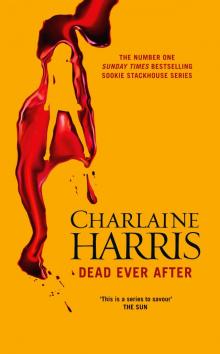 Dead Ever After
Dead Ever After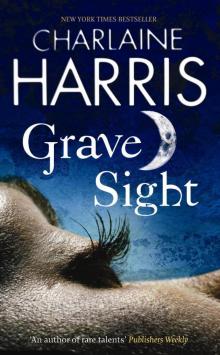 Grave Sight
Grave Sight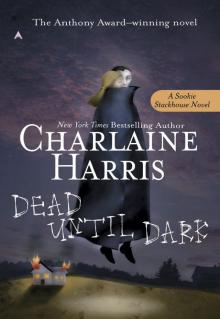 Dead Until Dark
Dead Until Dark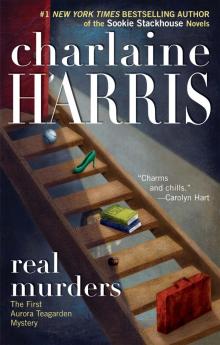 Real Murders
Real Murders Wolfsbane and Mistletoe
Wolfsbane and Mistletoe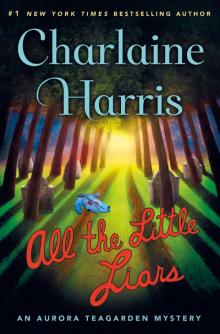 All the Little Liars
All the Little Liars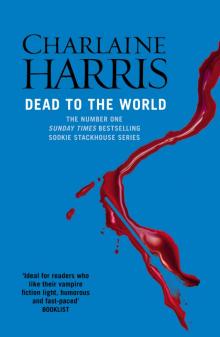 Dead to the World
Dead to the World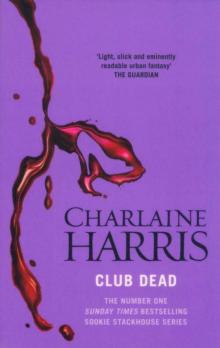 Club Dead
Club Dead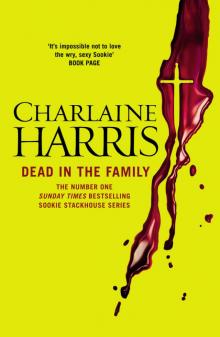 Dead in the Family
Dead in the Family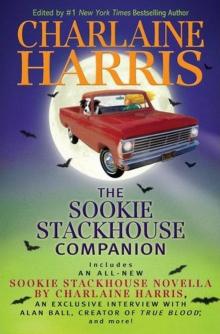 The Sookie Stackhouse Companion
The Sookie Stackhouse Companion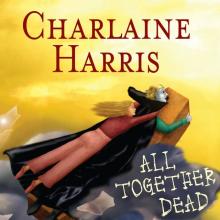 All Together Dead
All Together Dead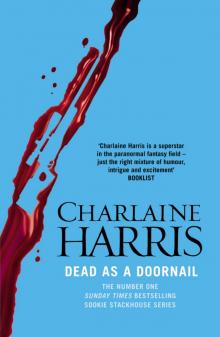 Dead as a Doornail
Dead as a Doornail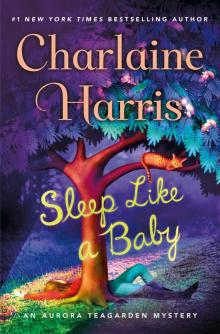 Sleep Like a Baby
Sleep Like a Baby Night Shift
Night Shift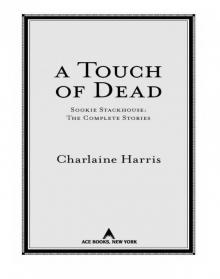 A Touch of Dead
A Touch of Dead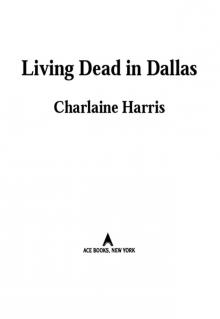 Living Dead in Dallas
Living Dead in Dallas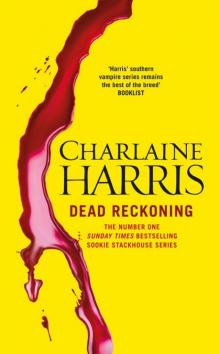 Dead Reckoning
Dead Reckoning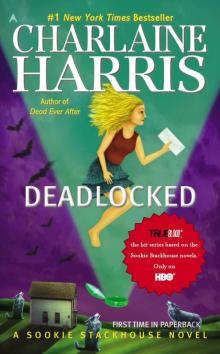 Deadlocked
Deadlocked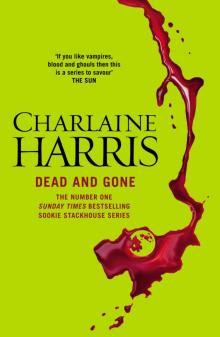 Dead and Gone
Dead and Gone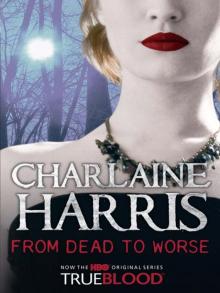 From Dead to Worse
From Dead to Worse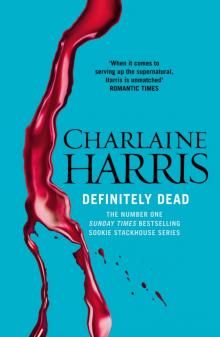 Definitely Dead
Definitely Dead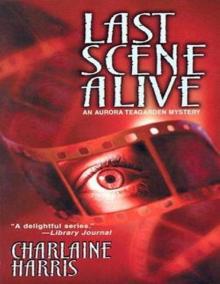 Last Scene Alive
Last Scene Alive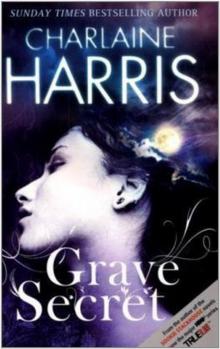 Grave Secret
Grave Secret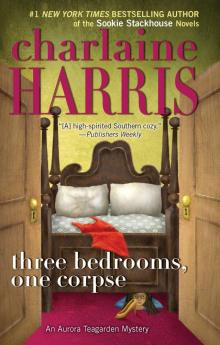 Three Bedrooms, One Corpse
Three Bedrooms, One Corpse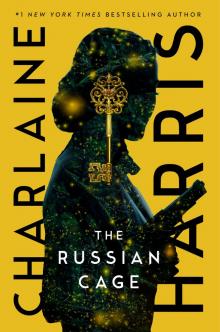 The Russian Cage
The Russian Cage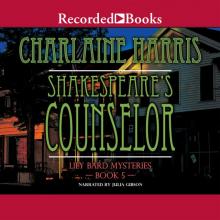 Shakespeares Counselor
Shakespeares Counselor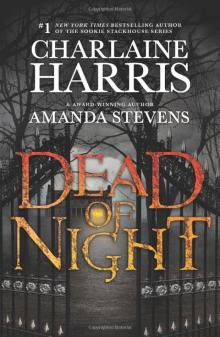 Dead of Night
Dead of Night Shakespeares Trollop
Shakespeares Trollop One Word Answer
One Word Answer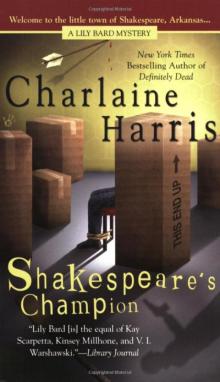 Shakespeares Champion
Shakespeares Champion Shakespeares Christmas
Shakespeares Christmas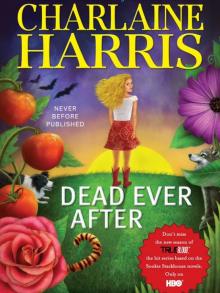 Shakespeares Landlord
Shakespeares Landlord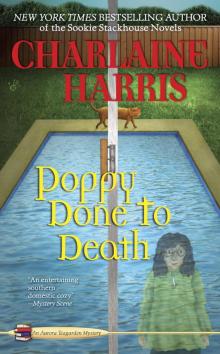 Poppy Done to Death
Poppy Done to Death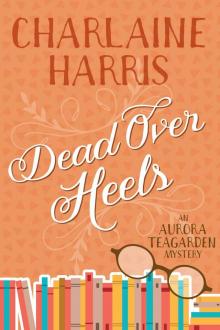 Dead Over Heels
Dead Over Heels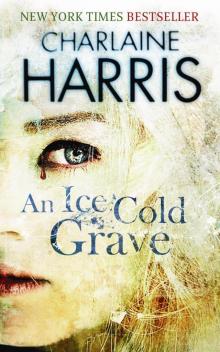 An Ice Cold Grave
An Ice Cold Grave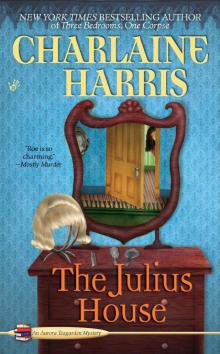 The Julius House
The Julius House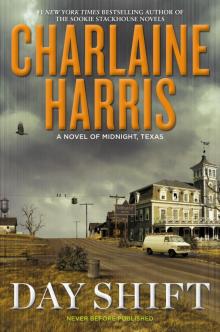 Day Shift
Day Shift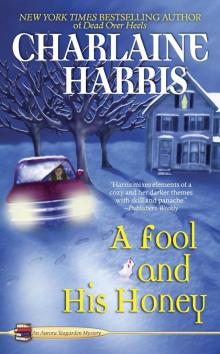 A Fool And His Honey
A Fool And His Honey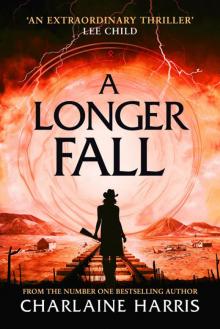 A Longer Fall (Gunnie Rose)
A Longer Fall (Gunnie Rose)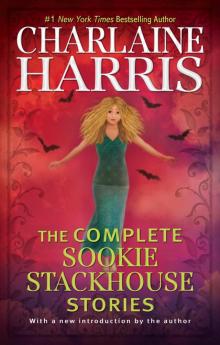 The Complete Sookie Stackhouse Stories (Sookie Stackhouse/True Blood)
The Complete Sookie Stackhouse Stories (Sookie Stackhouse/True Blood)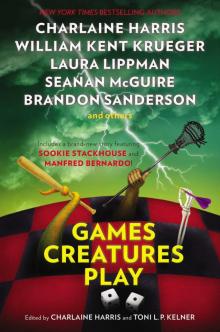 Games Creatures Play
Games Creatures Play Death's Excellent Vacation
Death's Excellent Vacation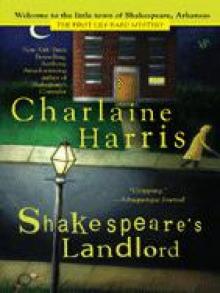 (LB2) Shakespeare's Landlord
(LB2) Shakespeare's Landlord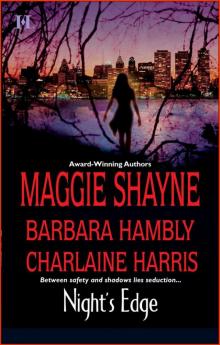 Dancers In The Dark - Night's Edge
Dancers In The Dark - Night's Edge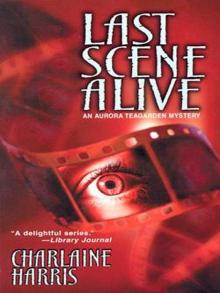 Last Scene Alive at-7
Last Scene Alive at-7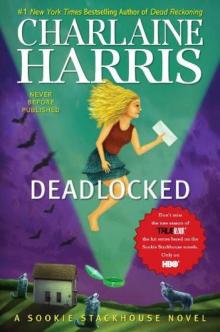 Deadlocked: A Sookie Stackhouse Novel
Deadlocked: A Sookie Stackhouse Novel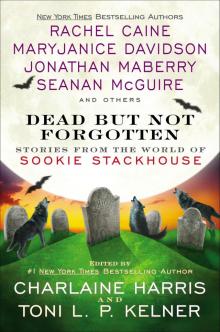 Dead But Not Forgotten
Dead But Not Forgotten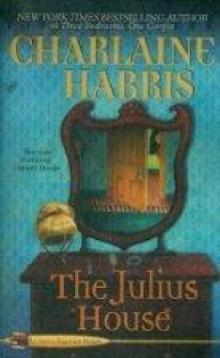 (4/10) The Julius House
(4/10) The Julius House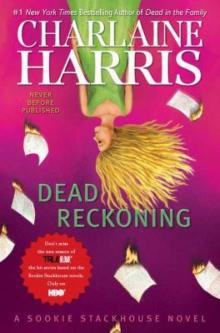 Dead Reckoning: A Sookie Stackhouse Novel
Dead Reckoning: A Sookie Stackhouse Novel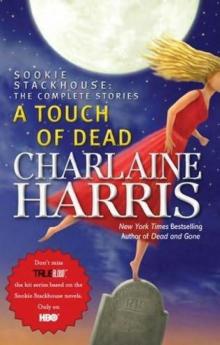 A Touch of Dead (sookie stackhouse (southern vampire))
A Touch of Dead (sookie stackhouse (southern vampire))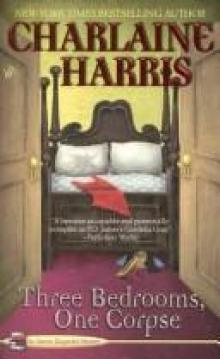 (3T)Three Bedrooms, One Corpse
(3T)Three Bedrooms, One Corpse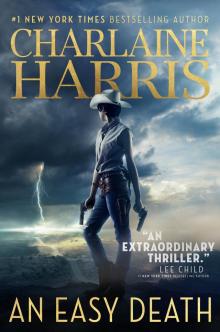 An Easy Death
An Easy Death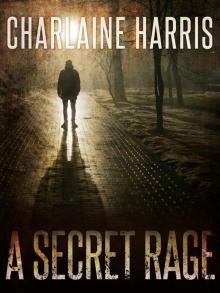 A Secret Rage
A Secret Rage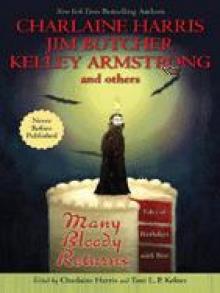 Many Bloody Returns
Many Bloody Returns![Harper Connelly [3] An Ice Cold Grave Read online](http://i1.bookreadfree.com/i/03/25/harper_connelly_3_an_ice_cold_grave_preview.jpg) Harper Connelly [3] An Ice Cold Grave
Harper Connelly [3] An Ice Cold Grave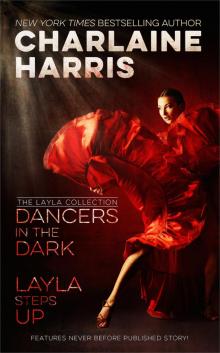 Dancers in the Dark and Layla Steps Up
Dancers in the Dark and Layla Steps Up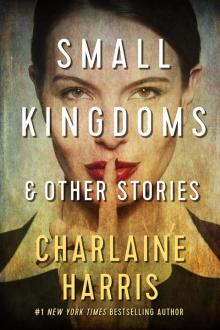 Small Kingdoms and Other Stories
Small Kingdoms and Other Stories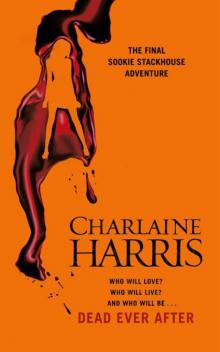 Dead Ever After: A Sookie Stackhouse Novel
Dead Ever After: A Sookie Stackhouse Novel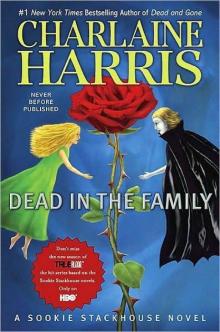 Dead in the Family ss-10
Dead in the Family ss-10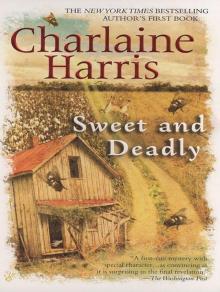 Sweet and Deadly aka Dead Dog
Sweet and Deadly aka Dead Dog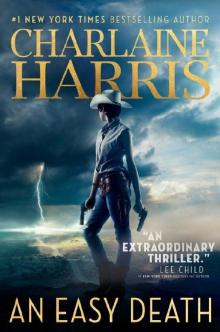 An Easy Death (Gunnie Rose #1)
An Easy Death (Gunnie Rose #1)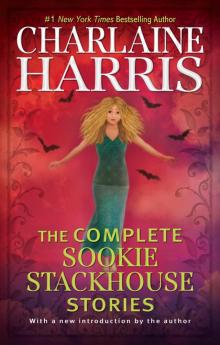 The Complete Sookie Stackhouse Stories
The Complete Sookie Stackhouse Stories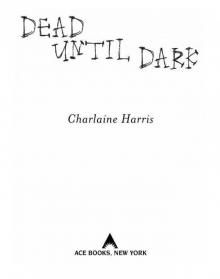 Sookie Stackhouse 8-copy Boxed Set
Sookie Stackhouse 8-copy Boxed Set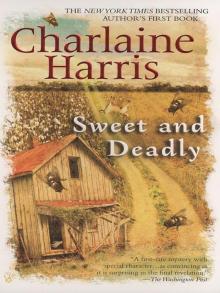 Sweet and Deadly
Sweet and Deadly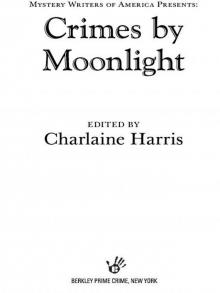 Crimes by Moonlight
Crimes by Moonlight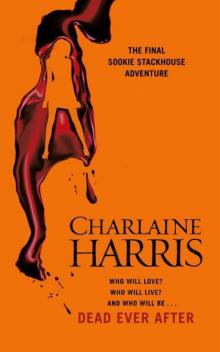 Dead Ever After: A True Blood Novel
Dead Ever After: A True Blood Novel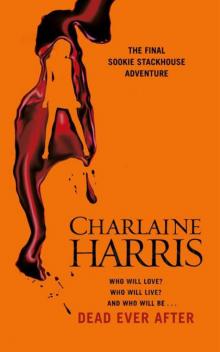 Dead Ever After ss-13
Dead Ever After ss-13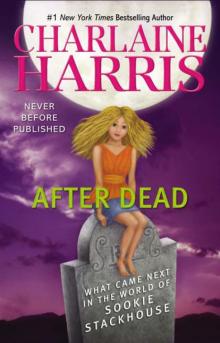 After Dead
After Dead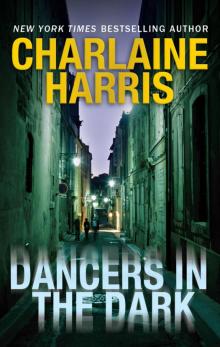 Dancers in the Dark
Dancers in the Dark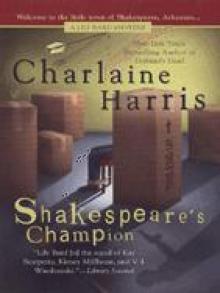 (LB1) Shakespeare's Champion
(LB1) Shakespeare's Champion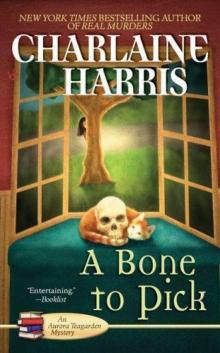 A Bone to Pick (Teagarden Mysteries,2)
A Bone to Pick (Teagarden Mysteries,2)